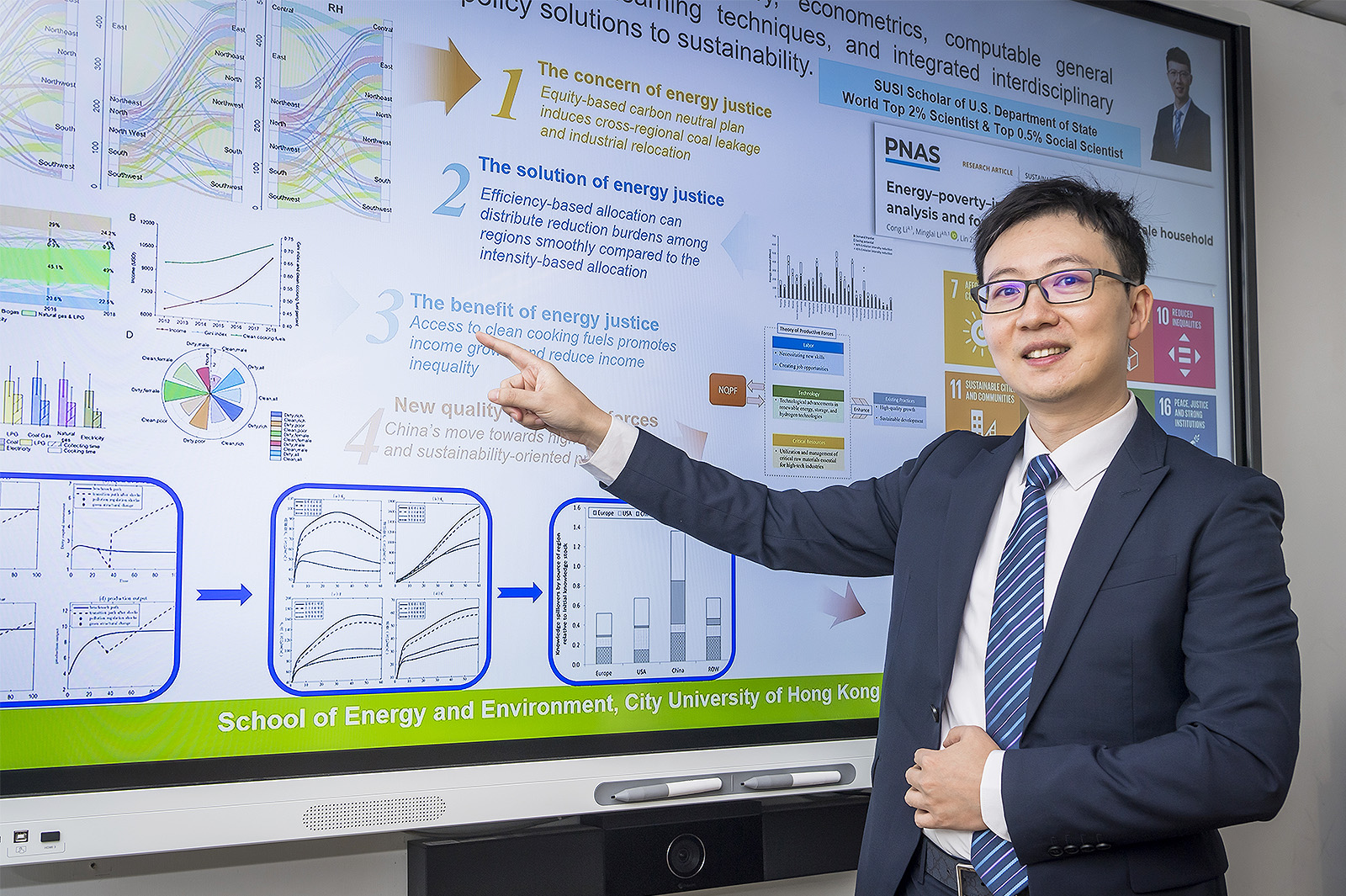Clean cooking fuels have great potential to reduce income inequality, CityUHK researchers find

Imagine a world where access to clean energy not only powers homes but also lifts millions out of poverty and reduces inequality.
Dedicated to achieving the United Nations’ Sustainable Development Goals (SDGs), researchers at City University of Hong Kong (CityUHK) discovered that transitioning to clean cooking fuels can significantly promote multiple SDGs, including affordable and clean energy (SDG 7), poverty elimination (SDG 1) and reduced inequality (SDG 10).
“Energy transition is often seen as driven by economic growth. However, our study shows that it can also reduce inequality and boost income growth,” said Professor Zhang Lin from the School of Energy and Environment and the Department of Public and International Affairs at CityUHK, who led the study.
Access to clean cooking fuels has been uneven, especially in developing countries. Energy poverty and economic poverty are closely linked, making it essential to address both when promoting clean energy.
Using data from Chinese households, the team found that a 10% increase in clean cooking fuel use could boost total annual household income by US$37 billion. This income growth is more significant for lower-income groups, helping to reduce income inequality.
“The most challenging part of this study was uncovering how the energy transition improves income distribution,” said Professor Zhang. “We found that it enhances human capital and reallocates labour time.”
Clean cooking fuels can reduce lung disease, decrease chronic illnesses, and improve overall health. A 10% increase in their use could save US$2.34 billion in medical expenses annually. Additionally, these fuels save time on fuel collection and cooking, freeing up about 0.4 hours per day for other activities, which increases labour supply and wage income.
Promoting clean cooking fuels has different costs for governments and households, but the overall benefits outweigh these costs. By 2030, as clean cooking fuels become more available, Professor Zhang expects improvements in income and inequality.
“Our study provides crucial insights for accelerating global progress towards the SDGs. Policymakers can integrate energy, poverty, and inequality solutions to promote collective progress,” he added.
The paper, titled “Energy-poverty-inequality SDGs: A large-scale household analysis and forecasting in China”, was published in the scientific journal Proceedings of the National Academy of Sciences.
Striving towards a green future, CityUHK has been avidly promoting sustainable practices through supporting research that champions the UN's SDGs. It continues to foster a vibrant community of world-class research and interdisciplinary collaboration, aiming to positively impact the environment and society.